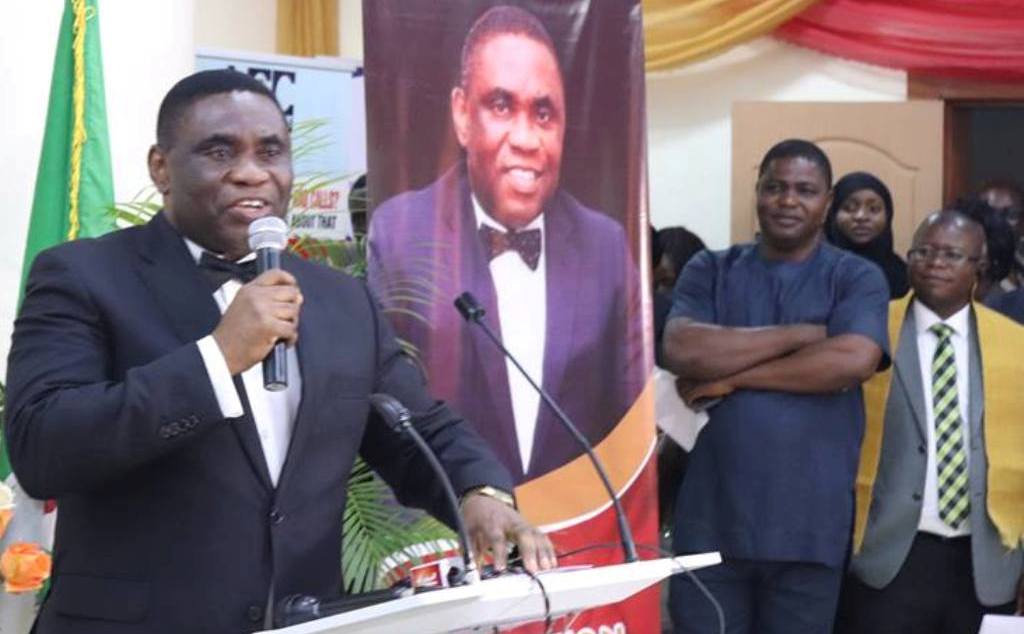The Nigerian Communications Commission says there were 172,871,094 active subscribers on the telecommunication networks in December 2018, as against 169,104,830 recorded in November 2018.
The telecommunications regulator disclosed this in its Monthly Subscriber/Operator Data made available on its website on Saturday.
The News Agency of Nigeria reports that the active subscribers increased by 3,766,264.
According to the data, 172,485,805 of the 172,871,094 active numbers subscribe to the Global System for Mobile Communications network services.
The GSM operators’ active customers’ figure increased by 3,756,800 in December, after the 168,729,005 subscribers recorded in November.
The reports stated that out of the GSM operators, MTN had 67,133,009 users in December, showing an increase of 158,017 from the 66,974,992 it recorded in November.
Globacom’s figure increased in December by 1,982,109, with 45,255,297 customers, as against 43,273,188 in November.
Airtel had 44,180,484 subscribers in the month under review, which showed an increase of 1,061,330 users, from the 43,119,154 it recorded in November.
9mobile recorded 15,917,015 customers in December, having an increase of 555,344 subscribers, against 15,361,671 in November 2018.
The Code Division Multiple Access operators recorded 124,092 subscribers in the month under review, indicating a decrease of 723, from 124,815 users in November.
Visafone which is one of the two surviving CDMA operators had 119,632 customers, showing a decrease of 723 from the 120,355 recorded in November.
On the other hand, Multi-Links had 4,460 in the month under review, same with the record of November.
The monthly subscriber/operator data showed that the Fixed Wireless network (landline) consumers remained at 26,865 in December.
One of the two landline networks, Visafone had 26,437 subscribers, while Multi-Links maintained its record of 428 customers in the month under review.
It also revealed that the Fixed Wired operators (landline) subscriber base increased by 4,795 coming up to 113,626 users in December, as against 108,831 recorded in November.
In the Fixed Wired arena, MTN Fixed moved from 5,499 users in November to 5,450 users in December, thereby decreasing by 49 customers.
Glo Fixed had 2,879 users in December, increasing by 74 customers from the November record of 2,805.
IpNX network moved from 2,357 subscriber base in November to 2,281 in December, hence, its customers decreased by 76.
It said that 21st Century Network had 103,016 customers in December, recording an increase of 4,846 users from its November record of 98,170 subscribers.
The report also showed that the two Voice Over Internet Protocol networks had 120,706 active users in December, as their customers increased by 5,392, from their November subscriber base of 115,314.
Of the VOIP networks, Smile Communication had 113,201 customers, giving an increase of 5,835 users to its November result of 107,366.
Ntel had 7,505 consumers subscribing to its products and services in December, showing a decrease of 443 users to the November record of 7,948.
The regulatory body said that Section 89, Subsection 3(c) of the Nigerian Communications Act, 2003 mandated it to monitor and report the state of the telecommunications industry.
“The commission is mandated to provide statistical analyses and identify industry trends with regard to: services, tariffs, operators, technology, subscribers, issues of competition and dominance.
“This is with a view to identifying areas where regulatory intervention will be needed.
“The commission regularly conducts studies, surveys and produces reports on the telecommunications industry.
“Therefore, telecommunications operators are obligated, under the terms of their licenses, to provide NCC with such data on a regular basis for analytical review and publishing,” NCC said.
